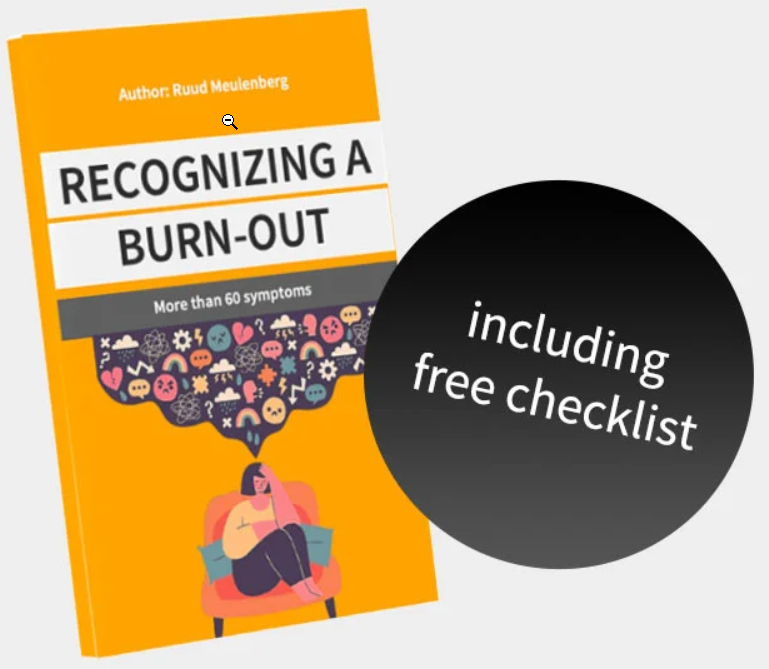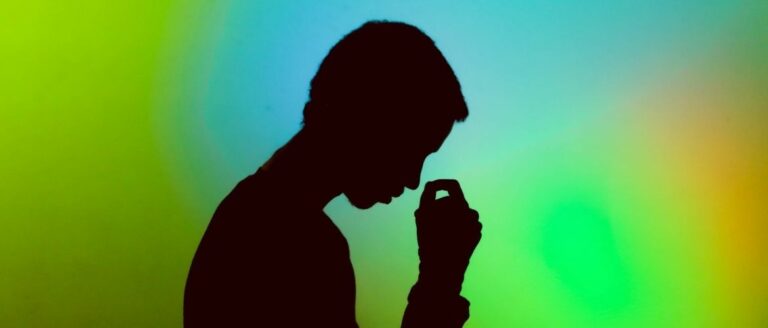At its heart, social media is a tool that helps people stay in the loop with the world and lets others stay connected with them. It allows us to build personal and public networks without being limited by distance. This means we can interact with almost anyone, no matter where they are. But is social media a good thing, or can it add stress to our lives? This article aims to look into what social media is all about, its pros and cons, and ways we can handle it better in our daily lives.
What is Social Media?
It is a digital platform that allows the public to communicate and interact with each other. It’s the medium through which we stay connected with friends and family, find encouragement, and share ideas and experiences. It acts as a digital word of mouth and provides a unique platform to convey thoughts and feelings in an open, public format.
Today, it is an integral part of our culture and everyday lives. According to recent statistics, in the US for example, 93% of the population between 18 and 44 uses social media [1]. Out of this group, two out of three people report spending at least an hour on it each day. This number increases when looking at the teenage demographic, with 81% of teens spending multiple hours daily.
Can we help you?
Leave us your information and one of our coaches will contact you in 24H

Social media also has a tremendous impact on business and the economy. For instance, 95% of social media users reported that they follow brands on social media. Additionally, 64% of users reported they purchase something after viewing it on a media platform, making it a great marketing tool for businesses.
It comprises various platforms with distinct features and unique user bases. For instance, Facebook is the current market leader and the most popular network, with 74% (of Americans) using it. On the other hand, Instagram and Snapchat have strong users among teens and young adults, while LinkedIn is a professional-based social media platform.
What Role Does Social Media Play in Our Lives
Social media is almost unavoidable in the modern day and plays a large role in many people’s lives as it has many uses:
Maintains and Builds Relationships
Connecting with friends and family online allows us to remain close even if we are long distances away. Platforms like Snapchat and Instagram allow us to send photos, spontaneous messages, and share stories that help bring us closer.
Creates New Career Opportunities
Many platforms, such as LinkedIn and job boards, allow people to create professional networks and build career prospects. For example, people can use it to:
- Promote themselves
- Search for job opportunities
- Engage with industry professionals.
Acts as a Source of News and Entertainment
We can now access various news outlets and stay updated with what is happening worldwide by simply signing into our accounts. Moreover, by using stories and posts, we can now engage in real-time debates and conversations to gain more perspectives. It even enables us to enjoy various activities, such as online competitions and joining hobby groups, without leaving the house.
Raises Awareness and Mobilises Action
It grants everyone a powerful platform to share facts and information and connect with people who share the same ideals. For example, in times of crisis and disasters, you can use it to create awareness and coordinate relief efforts.
Increases Knowledge and Research Sharing
Anyone with access to the internet can now easily search for and access a vast selection of information on any given topic. That reduces the stress and expense of travelling to physical libraries and bookstores due to endless information available online.
Positive Effects of Social Media
There are many benefits of online platforms which contribute positively to our personal and professional lives as follows:
Self-expression
It allows people to share their opinions and ideas with others, no matter the number of followers or fans someone may have. That allows them to connect with others through their thoughts and ideas and manage stress.
Creativity
Art, photography, and various types of visual media can be shared directly with thousands of people worldwide in a few clicks. Further, platforms such as YouTube and TikTok have allowed people to share playful pranks and jokes that help manage stress. Social media platforms act as creative outlets upon which we can express ourselves.

Social Connection
Rather than physical letters, emails, or waiting for a phone call, many people use it to stay in touch with friends and family, even if they are thousands of miles apart. This fast-paced communication allows people to boost their relationships, regardless of distance.
Source of Relaxation
Endless videos, music, games, and movies are readily available to watch and play, allowing you to relax and relieve stress. In addition, it also offers numerous forms of interactive entertainment, such as live streaming on YouTube, Twitch, and Facebook.
Growth of Business Opportunities
Businesses can reach out and target a wider audience for their goods and services, thus building relationships and increasing employment opportunities.
Grows Brand Awareness
Businesses can spread their message far and wide through tailored ads and campaigns. That creates awareness of their brand, expands their online presence, and builds trust with their target audience.
How is Social Media Linked to Stress
Online platforms, as well as bringing benefits in our lives, have also been found to bring about stress-related feelings such as pressure and anxiety. When experienced over long periods of time, can have hazardous effects on our health and lead to chronic stress and burnout. Additional negative feelings are:
Insecurity
People have inconsistent validation and feedback they receive on various platforms. For example, you can post content many people like and the next post doesn’t receive more engagement or “likes”. This rejection can lead to feelings of inadequacy and insecurity and increase stress levels.
Inferiority
Its use can often lead to feelings of comparison. People tend to post their “highlight reel,” meaning their content is their best or most exciting moment. They may also only portray images of their “best life” which can deceive people. Those viewing this content tend to compare their lives to others and may feel inferior, or even envious of others, resulting in more stress, disappointment and feeling sorry for yourself.
Overwhelm
It also increases stress levels due to its endless information and content. Scrolls through social media threads, comments, and discussions can make people anxious and overwhelmed.
Distress
The risk of cyberbullying leads to negative experiences and insecurities. Cyberbullying can have an incredibly damaging effect on people’s self-esteem and mental health, raising stress levels.

Download our
free e-book
Recognizing a burnout
(more than 60 symptoms)
Insomnia
People often spend prolonged periods looking at screens and socialising online, eating into periods when they can sleep. Sleep deprivation causes many mental and physical issues, such as lowered immune systems and stress.
Isolation
Frequent use of social media can sometimes lead to feelings of isolation. Despite being connected online, individuals may experience a sense of loneliness or detachment from real-world social interactions, contributing to stress and emotional distress.
Time Drain
Excessive time spent on social media can be a significant time drain, impacting productivity and personal time management. This constant connectivity may lead to neglecting important tasks, causing stress due to unfulfilled responsibilities and deadlines.
Improving Your Relationship with Social Media
It’s important to have a healthy relationship with the online world. Practicing self-care, being aware of behaviours and replacing bad habits with hygienic online ones, can all improve the online interactive experience. Some examples are:
Set Boundaries
It may involve designating specific times during the day to check your accounts and limiting your time spent online. You may also need to set boundaries limiting specific posts, such as anything with offensive content.
Be Mindful of Who You are Following
Unfollow accounts that stress you or make you feel down. This will enable you to feel more in control of you and your life. It’s also important to recognise when you’ve had enough and to take a break from it if necessary.
Use Self-Care and Self-Reflection
That can include connecting with yourself and being mindful of your stress levels. You can also use healthy coping mechanisms, such as journals, meditation, or yoga, to help ground you and to reduce stress. And give you some time away from being online!
Help Others
Most social media accounts allow you to contribute positively by sharing information about things you love. That can serve as a reminder that it can be used for good, making it a less stressful and more rewarding experience.
Tips to Reduce Social Media Use
Create an Achievable Goal
It is crucial to be mindful of the type of activity we engage in and the time we allot for media. We can limit ourselves to only consuming content rather than creating content, thus reducing the chances of stress.
Stop Mindless Scrolling
Mindless use often occurs when we are in-between tasks, or do not have anything to do. We can avoid such scenarios by actively engaging in something else when we feel bored or unoccupied. Find a replacement activity such as walking, playing a sport, or reading a book.

Limit Notifications
With social media apps and our notifications constantly bombarding us with news and posts, it is easier to divert your attention. Limiting notifications and removing the app from the home screen can be a simple and effective way to reduce its use.
Remember, always be kind to yourself. It’s essential not to stress ourselves if we can’t adhere to reducing our daily intake on being online. It can become addictive, and it is essential to understand that it can be challenging to break free from its grasp.
Where Can I Get Help with Social Media Use
Identifying if you are having difficulty maintaining a balanced and healthy relationship with it is the first step to recognising you might have an unhealthy relationship with your online presence.
Some common symptoms associated with excessive media use are:
- Avoiding activities you used to previously enjoy
- Feeling anxious when you are unable to log on
- Reduced attention to important tasks.
If you feel this way, it might be a good idea to share your feelings with others. After all, talking to someone can be a very effective way to deal with any discomfort you may be experiencing.
Friends and family are often good starting points, as they may be able to relate to your experience. Alternatively, you could talk to a professional, such as a therapist or stress coach who can delve into the reasons why you engage in the online world so much and what gaps this might be filling in your life. In addition, you could join an online support group where you could freely share your experiences.
Booklets and other resources published by health organizations and receive tips on managing time effectively and increasing social activities might also help.
Conclusion
Social media is like a big online world with good and not-so-good parts. It helps us connect with others, share ideas, and have fun. But, it can also bring stress and bad feelings.
Using social media a lot can make us feel pressure and anxiety. It might seem cool when people like our posts, but what if the next one doesn’t get many likes? That can make us feel not good enough. Also, we might compare our lives to others’ highlight reels, feeling like we’re not as good. Scrolling through endless information and dealing with cyberbullying can make us stressed too. Plus, spending too much time online can mess up our sleep.
To deal with this, we can set limits on social media use, unfollow accounts that make us feel bad, and take breaks from it. We should be kind to ourselves and not stress if we can’t always stick to the plan. Talking to friends, family, or professionals can help us feel better and get tips on managing social media time. Remember, it’s okay to enjoy social media, but it’s essential to find a balance for a happier and healthier life.
Stress & burnout coaching; for 100% recovery!
Reducing stress and recovering from burnout is simply incredibly difficult. The coaches at Meulenberg Training & Coaching understand exactly what you are going through and know how tough it can be. They have often experienced it themselves! With their years of experience and expertise, they are ready to help you step by step toward a full recovery. The results of our one-on-one coaching and absenteeism training will benefit you for a lifetime!
FAQ
References
- sentiment.io – What Percentage Of Teens Use Social Media? (2024) – found on 26/02/2024
Link to a page on sentiment.io






